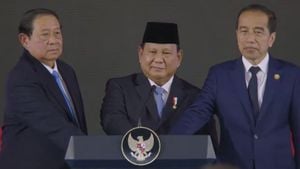After the recent Bundestag election, Melis Sekmen has emerged victorious in Mannheim, clinching the district seat for the CDU with 24.7 percent of the votes. The election results, which were tallied from approximately 195,000 eligible voters, reflect a noticeable shift in the political dynamics of the area, especially with Sekmen's switch from the Greens to the CDU before the election.
Contrary to the previous election where Isabel Cademartori of the SPD commanded the district, this time around, Cademartori secured 22.5 percent, landing her second place. Meanwhile, Nina Wellenreuther from the Greens garnered 18.1 percent of the votes, closely followed by Heinrich Koch from the AfD with 17.9 percent.
The turnout for this election was commendable, with 78.4 percent of voters casting their ballots, indicating strong engagement among the electorate. This figure marked an increase of 6.2 percentage points compared to the 2021 elections.
The election's significance is amplified by the new electoral law, which, for the first time, alters the process wherein the winner of each district does not automatically secure their spot in the Bundestag. Whether Sekmen will actually take her place depends on the CDU's overall performance, particularly their second vote count. The CDU did win this count with 23.1 percent, but these changes mean more uncertainty for individual candidates.
After the results were announced, Sekmen expressed gratitude for the support she's received, framing her victory as "a vote of confidence" from the citizens. Referring to her new position, she stated, "We have made significant gains both at the first and second votes." She emphasized the CDU's improved standing, anticipating her next steps based on the final outcomes of the second vote tallies.
On the contrary, Cademartori articulated her disappointment, acknowledging the SPD's struggling national stance, calling it "one of the worst results for the SPD since post-war times." Despite her individual effort, the broader party dynamics seem to cloud her future prospects.
The results also hint at gains for the AfD, which saw its percentage rise by 8.4 percentage points compared to the last election. This increase suggests the party's strategy may resonate more positively with the electorate now than in 2021.
Nina Wellenreuther from the Greens, hoped for different results but recognized the desire for forward-looking policies among the population. "Although I wished for a different result, this outcome reflects the fact many wish for accountable governance for today and future generations," she noted after the results were revealed.
According to the reports from the election, the other parties, namely the Linke and FDP, failed to gain significant traction, with the FDP experiencing the largest loss at 8 percentage points, resulting in their candidates failing to retain their footing for parliamentary positions.
For historical comparison, the last elections saw Cademartori secure success with 26.4 percent of first votes, and the SPD proved stronger overall with 25.3 percent during the second votes. Different sentiments echo this time considering the SPD's recent challenges.
The complete results from Mannheim reveal how parties have flourished or faltered, marking the election as pivotal for determining future engagements. With the CDU and SPD leading the pack, the changing of hands signals not just local shifts but also reflects larger conversations happening on national levels across Germany.
Looking forward, analysts are pondering the ramifications of such electoral changes and whether parties like the AfD may solidify their roles amid the reshaping of voting landscapes, especially with the rise of populist sentiments across many regions.
The future actions and strategic adjustments by each party will be pivotal as they move beyond these results and work to galvanize their respective bases for the upcoming challenges, not limited to just the Bundestag but extending to local governance.
The political scenarios highlighted by this election frame the election as not just numbers on paper but reflections of the electorate's desires and concerns moving forward. Voters have made their choices known, and how parties respond will set the tone as Germany navigates the road ahead.



